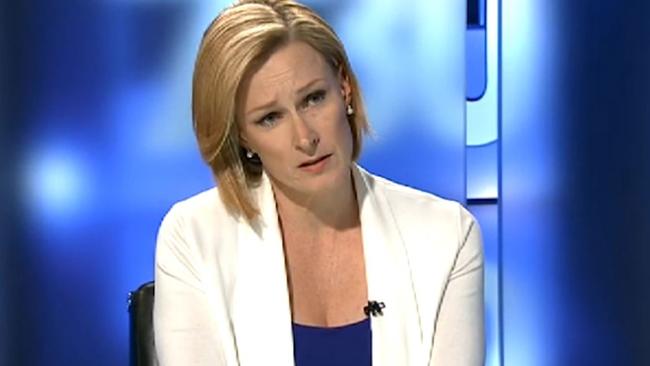Federal Treasurer Scott Morrison would not reveal how he would vote in gay marriage plebiscite
YES or no? That’s all we wanted to hear from Scott Morrison last night, but he was determined to dodge the question.
THE legalisation of gay marriage has been a huge issue leading into Saturday’s federal election.
And Treasurer Scott Morrison is not keen to make his views clear to the Australian public.
He appeared on ABC’s 7.30 on Tuesday night and was grilled by journalist Leigh Sales about Liberal’s plan to put the issue of marriage equality to a public vote.
She asked the Liberal politician if he would vote in favour of gay marriage or not.
“I’ll respect the outcome of the plebiscite,” he said.
Sales continued to press him, asking why he could not answer the question clearly.
“I will use my words, you use yours, and you’re not allowed to put words in my mouth,” he said.
“I will respect the outcome of the plebiscite. If it passes then the legislation will pass.”
Sales kept asking why the Treasurer was dodging the question, but Mr Morrison still failed to reveal how he would vote.
“We will allow our viewers to make their judgment as to what they think you will do,” Sales said

The ABC program focused on the legalisation of same-sex marriage and spoke to prominent Irish drag queen Rory O’Neill, also known as Panti Bliss, about the public vote in the Catholic country last year.
Mr O’Neill, was one of the activists lobbying to have gay marriage legalised in Ireland.
He told 7.30 he experienced homophobia growing up, he was called a f** and had things thrown at him.
“Even in somewhere as liberal and open as Sydney is, every day a person has to modify their gayness in a sense in order to be safe or not be the object of ridicule or scorn. Every single day,” he said.
When Mr O’Neill would hold rallies in the lead-up to Ireland legalising gay marriage, he would put it into perspective, saying murderers and sex offenders had the right to marry, so why couldn’t the LGBT community?
Mr O’Neill spoke to 7.30 about Liberal’s plan to hold the plebiscite and he said it wasn’t necessarily the best idea.
“I know you will probably have a plebiscite here. Doing it by referendum is not something I would recommend,” he said.
“It’s a difference process — an uncomfortable and unpleasant process, especially for LGBT people, because people are given a voice to say the most horrible things.”

Mr O’Neill said there was more naked homophobia during the public vote for gay marriage in Ireland and he would be called a f****t on the street.
“This stuff was being constantly brought up and presented, and there’s a sort of really horrible personal feeling to it if you’re an LGBT person,” he said.
Despite the plebiscite being an uncomfortable experience for the LGBT community, Mr O’Neill told 7.30 it could also be really powerful.
“Because afterwards nobody can complain that it was brought in by a political elite, because it wasn’t. The whole country debated it endlessly. And we all voted on it and it’s been decided,” he said.
“And immediately from the next day you saw gay couples holding hands in the street in a way you didn’t before. It felt bigger than simply about marriage. It felt like the question was really, are you fine with gay people? Do you think they are fully equal citizens? It felt amazing that the country had definitively said yes.”
Mr O’Neill said everybody in Ireland had a family member, friend, co-worker or neighbour that was LGBT and when it came time to vote in the country, people voted for their loved ones.
“That’s why Ireland changed, because over the last 20 years LGBT people came out and revealed themselves,” he said.



